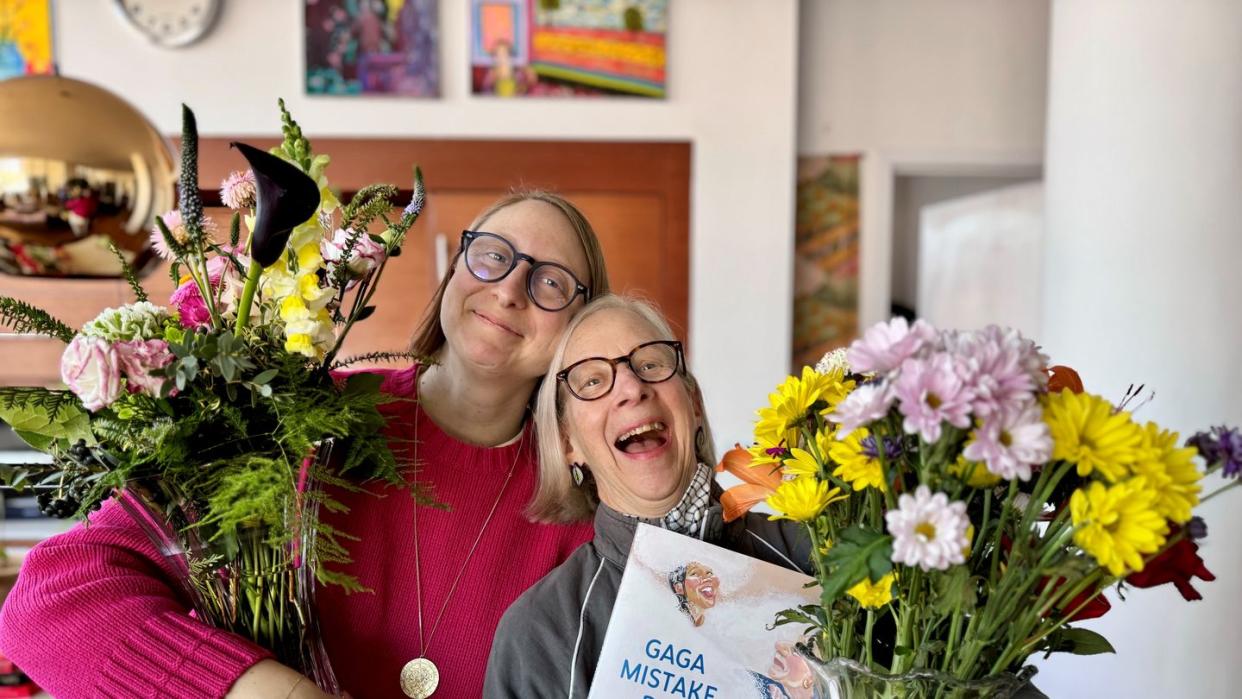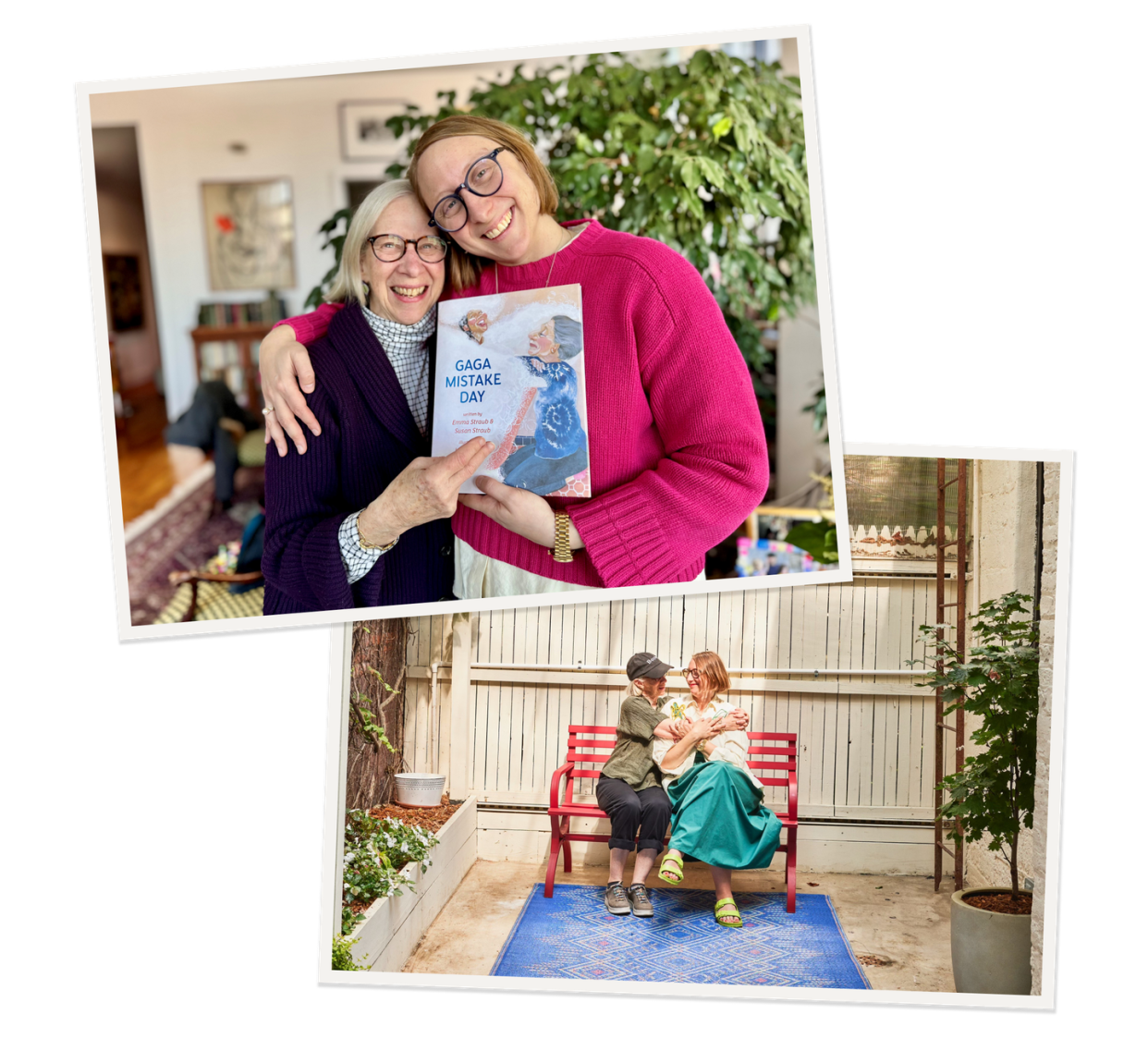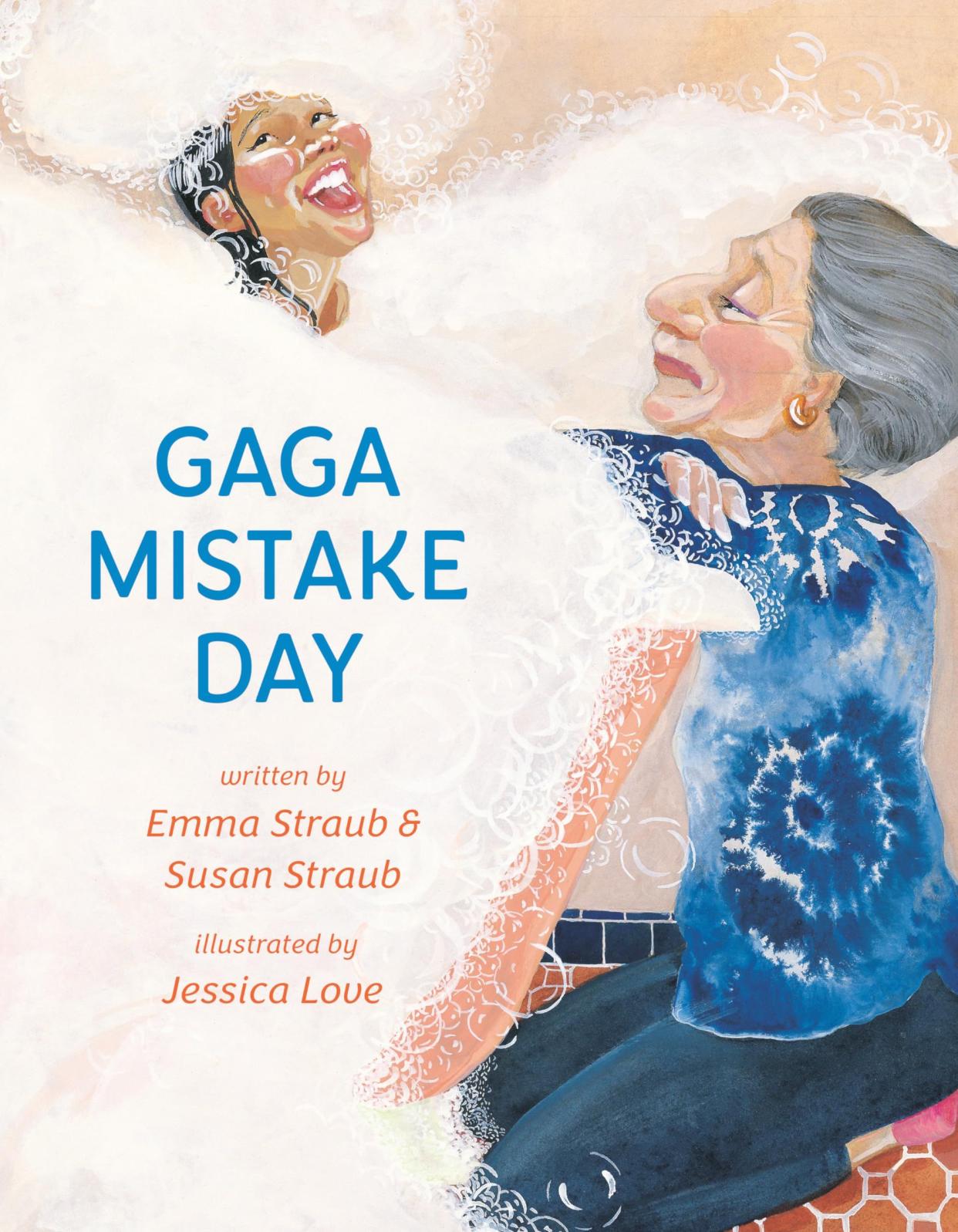Why Every Kid Needs a Kooky Grandma

"Hearst Magazines and Yahoo may earn commission or revenue on some items through these links."
We arrived at the airport during the eclipse. I’d been too harried to prepare and figured I’d catch the next one, only a mere 40 years away. When my mother and I got out of our taxi, though, a handful of airport workers were standing just outside the terminal’s automatic sliding doors, staring up at the sun, both hands holding their special glasses firmly in place.
“Want to look?” one of them asked. We said yes—and there it was, in a sea of black, a small crescent visible as the sun hid behind the moon. Inside the airport, everyone we spoke to was curious about what was going on outside. My mother talked to the man at security, she talked to the man running the X-ray machine, she talked to the person at the Shake Shack. Even without the help of a rare celestial event, my mother makes friends wherever she goes. Thinking about it now, I should have known we wouldn’t miss it, because I was traveling with my mother.
We were setting out on a weeklong book tour in support of our new picture book. The book is about a kooky grandmother who is very much like my mother. Luckily, when you write a picture book, the questions you field from the audience tend to be more about what your cats’ names are, rather than where the line is between fiction and nonfiction. When I describe my mother to people who haven’t met her, I usually say that she looks just like me, only little. Despite my being six inches taller, probably 60 or 70 pounds heavier, and 35 years younger, my iPhoto cannot distinguish between our faces.
If you hear the words book tour, you might imagine dimly lit bookstores and bookish people sitting in folding chairs. For picture book authors, the scene is more like this: sneakers squeaking on gymnasium floors, a sea of upturned faces, loud laughter, and an excess of boisterous, spirited audience participation. We made a slideshow that had pictures of my cats, and of us doing various things that the characters do in the book: baking cakes, playing dress-up, reading books. In between these events, there are taxis, or airplanes, or trains, or the backseats of kind women’s minivans. Sometimes all of the above. We were both listening to Barbra Streisand’s audiobook, and so sometimes in the backseat we’d both be with Barbra, and then would compare notes on her love affairs.
Over the next week, we went to eight schools and half a dozen bookstores. She wore a green outfit and I wore the exact same outfit in pink, both of us with our names embroidered over the breast pocket. At one of the first school visits, when the slide of her own maternal grandmother was up on the screen, my mother said something like, “My grandmother was sick a lot.” The children, of course, asked questions about this, and it occurred to me that I didn’t know the answer. When Mom and I were writing the book, we talked about her role as a grandmother to my children—her inventiveness, her silliness, her wacky meals, her willingness to cuddle the kids, who are now as big as she is. But I don’t think she’s ever said anything to me about her grandparents. And I realized, I’d never asked.
My mother’s parents were old for the time—her mother in her 30s, and her father almost 40 when she was born in 1944. Her maternal grandmother died when her own mother was a teenager, her paternal grandmother elderly and unwell.
And so…my mother grew up without grandmothers, and certainly without grandmothers who would get on the floor with her, who would walk backward to the park, who would bake cakes for her stuffed animals. I, too, grew up largely without grandmothers—my father’s mother had Alzheimer’s disease and existed to me only as a body without a memory. We visited her in a nursing home full of people that frightened me, and it made my father so sad that we didn’t visit very often. For most of my life, my maternal grandparents lived across the country, though for a few years before my grandmother died, they lived nearby. We both loved horses, and fashion. She always had her hair done, wore Ferragamo heels and perfectly put-together outfits. I don’t know that she ever sat on the floor. She and I got our ears pierced together, which was certainly participatory for a woman who wore clip-ons for the first seven decades of her life. She died when I was 8, the age my younger son is now. I like to think that if she had lived longer, we would have been able to enjoy each other even more. She hadn’t loved having small children. Not everyone does.

Watching my mother in these rooms, full of kids’ colorful, exuberant art and kids’ exuberant bodies, watching her wag her goose’s head at them, inviting a touch or a conversation, I realized that it never occurred to me that she was creating herself—her grandmother self—whole cloth, but also that she needed me to do it. You can be a surrogate grandparent, of course—my younger son gets postcards on his birthday every year from a kind old man who used to volunteer to read to students at his preschool—but in order to be a grandparent, you need an intermediary, that pesky sandwiched mother or father, who is dealing with both their parents and their children at the same time. It feels almost like the inverse of a vampire story—in order for the grandmother to be present, you need to invite them in.
My mother’s 80th birthday is in two months. It is a big number, and an important one. Her own mother died at 77, and my father died at 79. I’ve just sent out the invitation to all of her friends, a wild, raucous, group of women. We are going to eat pizza and drink rosé and look at the Manhattan skyline. When birds fly by, my mother will identify them. If one of her grandchildren is nearby, she will put binoculars to their eyes and help them find the birds, too. There is no time like the present. The time is a present.

Gaga Mistake Day, by Emma Straub and Susan Straub
amazon.com
$16.99
You Might Also Like
